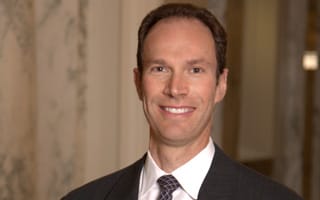


Who really is representing the interests of taxpayers in this state?
If you attended the Associated Taxpayers of Idaho annual meeting like I did Wednesday, you might wonder.
The meeting in Boise started well, but by the time lunch was served the average Idaho taxpayer was probably suffering from indigestion.
The first speaker, Tax Foundation policy analyst Jared Walczak, presented solid data that demonstrated that Idaho’s tax policy stacks up poorly when compared to regional states. The Tax Foundation’s 2017 State Business Tax Climate Index puts Idaho at 20th nationally. However, that is worse than every state with an adjoining border. Wyoming is 1st, Nevada is 5th, Montana is 6th, Utah is 9th, Oregon is 10th, and Washington is 17th. Jared pointed out that Idaho’s income tax structure was ripe for reform – with its many brackets and top rate coming in at 7.4 percent for individuals earning a taxable income under $12,000.
In general, the Tax Foundation favors simple and efficient tax policy that avoids handouts and special deals for connected businesses.
The speaker that followed Walczak apparently was not listening very well. Amazingly, Cortney Liddiard, CEO of Ball Ventures, a commercial development firm, opened his remarks by referencing some of the same data that Walczak presented, but then called for reducing the public voting threshold to pass general obligation bond votes from a two-thirds majority to a simple majority.
In fact, Mr. Liddiard likes Tax Increment Financing, the use of revenue bonds and urban renewal measures to increase state spending and borrowing.
Perhaps as a developer and manager of commercial property, it is easy to see why. However, these are just the sort of special interest carve-outs that violate the principles that the Tax Foundation advocated.
The luncheon speech by Gov. Butch Otter really took the cake. The governor touted his own record of using the recession to pare back state government to its proper role – without mentioning the huge rebound in state spending since that time, including an eight percent general fund increase for state fiscal year 2017. The governor also talked about the corporate tax relief that his administration supported – without mentioning that this was targeted at certain industries. He also did not mention the gas tax increase he signed in 2015.
However, the most disappointing message was his lack of clear support for tax relief. After noting that revenues were surging, that education was getting its due share, and that the state’s rainy day fund was growing, the governor passed on offering any tax relief plans. The governor stated that he would not offer any tax cut plans in 2017, but would simply be willing to listen to proposals from the legislature.
Yes, it is hard to believe that the governor would not use his staff and resources to lead on this issue, to offer tax relief for those who pay the bills in this state. A concrete plan would generate just the sort of discussion needed at the start of the legislative session.
Instead, the governor is simply signaling that though affordable, tax relief is simply not his priority.


